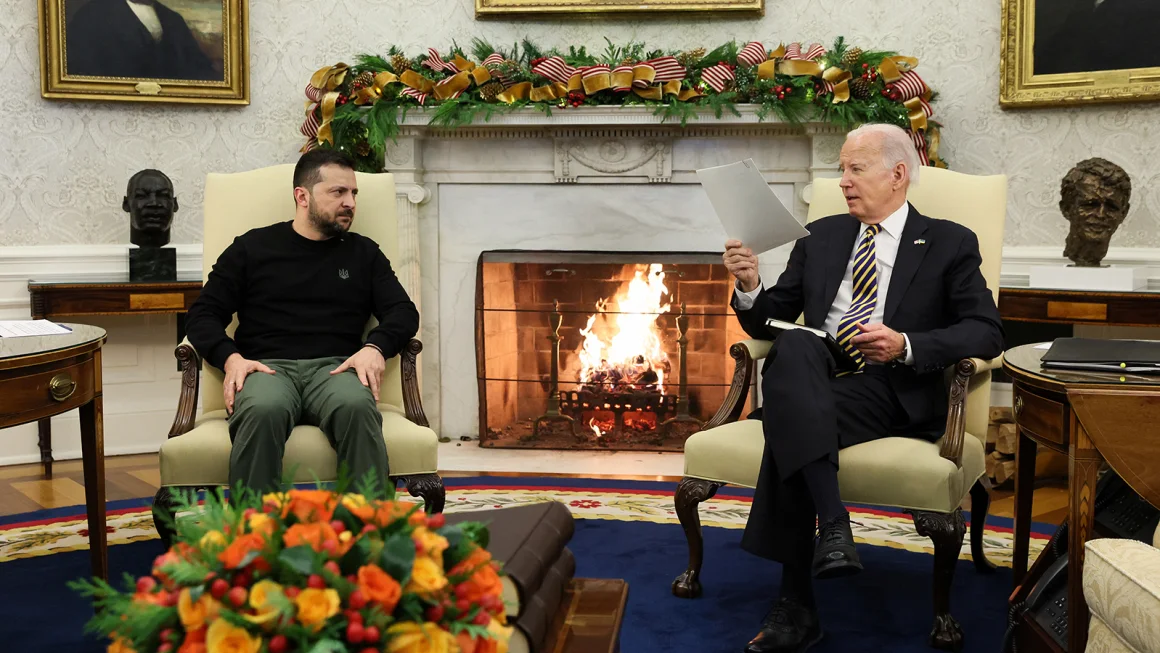U.S. and Ukraine to Sign Bilateral Security Agreement at G7 Summit
The United States and Ukraine are set to sign a pivotal bilateral security pact on the sidelines of the G7 summit in Italy this Thursday. This executive agreement aims to cement long-term U.S. involvement in Ukraine's defense but remains subject to change by future administrations.
This agreement follows months of negotiations and will be similar to those Ukraine has with other allies such as the United Kingdom, France, and Germany. The U.S. has committed to a 10-year plan that includes continued training for Ukraine's armed forces, increased weapon and military equipment production, sustained military assistance, and enhanced intelligence sharing. Unlike a formal treaty, this executive agreement will not necessarily bind future U.S. presidents, making it less assured in the long term.
President Joe Biden and Ukrainian President Volodymyr Zelensky will meet at the summit to finalize this agreement. National Security Council spokesman John Kirby emphasized that the U.S. commitment to Ukraine is set to be enduring and unequivocal, demonstrating to President Vladimir Putin that the international community remains steadfast in its support for Ukraine’s struggle for freedom.
The agreement doesn't include a specific monetary commitment but lays out a framework for how the Biden administration plans to work with Congress to secure long-term funding. An annex will outline procedures for unlocking Russia's frozen assets to assist in rebuilding Ukraine post-conflict.
In a broader context, the U.S. unveiled a new round of sanctions aimed at stifling the Russian war effort in Ukraine just before the G7 summit. These sanctions target over 300 entities, including the Moscow Stock Exchange, and focus on disrupting Russia's supply routes for essential materials and technologies. Treasury Secretary Janet Yellen stated that the measures aim to increase risks for financial institutions dealing with Russia's war economy.
Despite these aggressive measures, Russia has promised to respond in kind. Russian Foreign Ministry spokesperson Maria Zakharova stated that Russia would not leave the actions of the United States unanswered.
- Former President Donald Trump, the presumed Republican presidential nominee, has hinted that he might take a different approach to the conflict, advocating for a quick negotiated end to the war between Russia and Ukraine.
- The present U.S.-Ukraine agreement follows the course of 14 other bilateral agreements Ukraine has established with other allied nations, with an additional 17 countries committed to negotiating similar pacts. However, this agreement, like the others, does not include a mutual defense clause such as NATO’s Article V.
- The commitment arrives at a precarious time for the U.S.-Ukraine relationship, which has faced challenges amid Congressional disputes over additional funding. Biden recently apologized to Zelensky for delays in support and conceded to Ukraine's request to use U.S.-provided weapons to directly attack Russian territory, a significant strategic shift.






